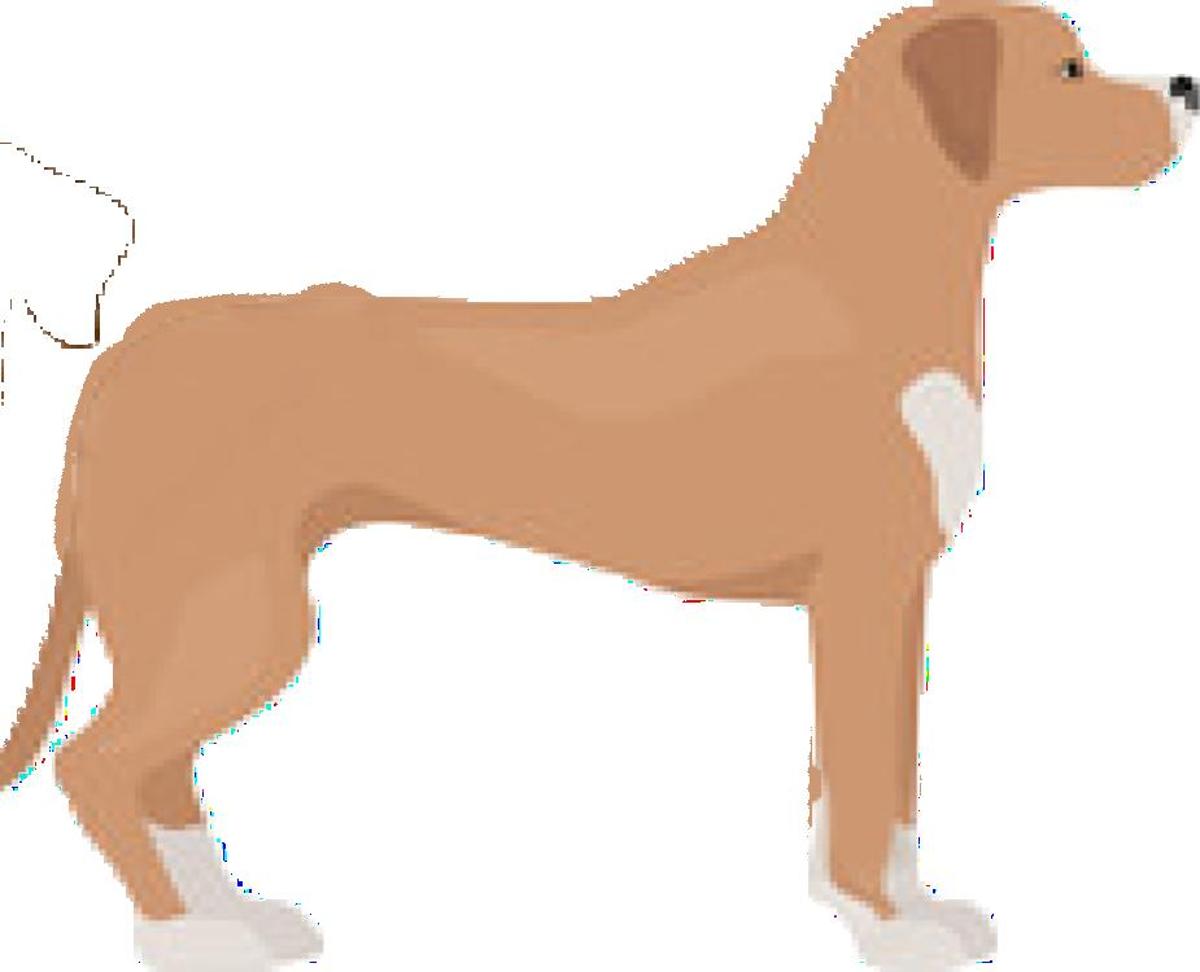Quick Links: Table of Contents
- Portuguese Pointer Breed Overview
- History of the Portuguese Pointer Breed. Where Portuguese Pointers came from
- What the Portuguese Pointer Looks Like
- What Colors do Portuguese Pointers Have?
- How Long Portuguese Pointers Live
- Health Problems in Portuguese Pointers and How to Prevent Them
- Dog Breeds That Are Similar to Portuguese Pointers
- Other Things to Know About Portuguese Pointers
Portuguese Pointer Breed Overview
The Portuguese Pointer is a medium-sized dog.
The adult Portuguese Pointer stands 20 to 22 inches.
The Portuguese Pointer belongs to the Sporting Dogs group.
Dogs in the Sporting Dogs group, like the Portuguese Pointer, were bred to help hunters catch and retrieve feathered game. Some sporting dog breeds such as Retrievers, which were built for swimming, were bred to hunt waterfowl in water.
Whereas sporting dog breeds like setters, spaniels, and pointing breeds were bred to hunt quail, pheasant, and other game birds nest on grasslands.
Many Sporting Group breeds have thick, water-repellent coats that protect them from harsh hunting conditions.
The fact that Portuguese Pointers belong to the Sporting Dogs group is one of the reasons why Portuguese Pointers have the personality and temperament that they have.
The temperament of the Portuguese Pointer is generally described as:
- Affectionate
- Calm
- Lively
- Submissive
History of the Portuguese Pointer Breed. Where Portuguese Pointers came from
Portuguese Pointers are a relatively new breed, having only been developed in the early 20th century.
The breed was created by Portuguese hunters who were looking for a versatile hunting dog that could be used for both pointing and retrieving.
To develop the Portuguese Pointer, they crossed several existing breeds, including the English Pointer, German Shorthaired Pointer, and Portuguese Water Dog.
The resulting breed was an eager hunter with a strong work ethic and a reputation for being particularly obedient.
Portuguese Pointers quickly gained popularity among hunters in Portugal and soon began to be exported to other European countries.
Today, Portuguese Pointers are prized for their hunting abilities and are also popular as companion dogs.
.
What the Portuguese Pointer Looks Like
Portuguese Pointers are large, muscular dogs with long legs and a short, dense coat.
They are typically either black or liver-colored, with white markings on the chest and feet.
Portuguese Pointers are powerful athletes, and they are known for their exceptional stamina.
They are also intelligent and trainable, although they can be stubborn at times.
Portuguese Pointers make excellent hunting dogs, and they are also loyal and affectionate companions.
.
What Colors do Portuguese Pointers Have?
Portuguese Pointers come in the following beautiful primary colors:
Portuguese Pointers come in the following lovely secondary colors in addition to their primary colors:
How Long Portuguese Pointers Live
The lifespan of the Portuguese Pointer is typically from 12 to 14 years.
Portuguese Pointers live long if they eat well, drink well, exercise well, and visit the veterinarian regularly.
Health Problems in Portuguese Pointers and How to Prevent Them
Every dog breed has its own set of health problems that it tends to develop. There is nothing like a perfect dog breed.
The Portuguese Pointer is prone to certain genetic health conditions. The Orthopedic Foundation for Animals (OFA) is an organization that keeps track of genetic health problems in dog breeds.
From the extensive records that the OFA keeps, the OFA knows what health problems each dog breed is naturally prone to develop.
Hence, the OFA recommends which health screening breeders should perform on a dog breed to make sure that the breeders won`t breed `defective` dog parents that can pass down defective genes to their puppy offspring.
If you want a Portuguese Pointer puppy that will grow up to be healthy, make sure that your Portuguese Pointer breeder screens your puppy or your puppy`s parents for the health problems that the OFA recommends for your puppy`s breed. This will increase the chances that your puppy is free from genetic defects.
The following are the health tests that Orthopedic Foundation for Animals (OFA) recommends that breeders should screen Portuguese Pointers for:
- Autoimmune thyroiditis
- Eye Examination – recommended testing frequency at ages 1, 4, and 7
- Hip Dysplasia
You can find out more about OFA`s recommended tests for Portuguese Pointers here.
Dog Breeds That Are Similar to Portuguese Pointers
If you have not made up your mind on which dog breed to get, you may also want to consider some other dogs similar to the Portuguese Pointer.
We crunched the numbers and found that the following dog breeds that have similar behavior and temperament as the Portuguese Pointer:
- American Bulldog (79 percent match with Portuguese Pointer). Learn more about the American Bulldog here.
- American Staffordshire Terrier (77 percent match with Portuguese Pointer). Learn more about the American Staffordshire Terrier here.
- Aussiedoodle (75 percent match with Portuguese Pointer). Learn more about the Aussiedoodle here.
- Boxerdoodle (77 percent match with Portuguese Pointer). Learn more about the Boxerdoodle here.
- Patterdale Terrier (78 percent match with Portuguese Pointer). Learn more about the Patterdale Terrier here.
Other Things to Know About Portuguese Pointers
Here are some of the very important characteristics of the Portuguese Pointer that you need to know about the Portuguese Pointer breed:
